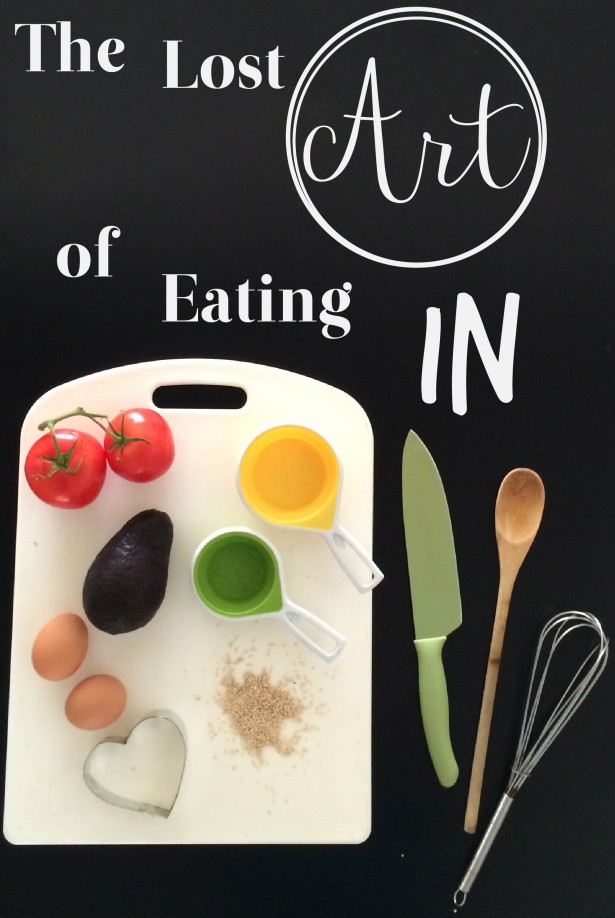Today marks the beginning of the bring joy guest post summer series.
While I’m taking some time away from blogging (ie. spending my days at the library & swimming with my kids), I’ve asked some of my most awesome friends, & blogger friends to step in & guest post.
I am so excited for you to meet some pretty spectacular people!
Everyone in this series is someone I either know personally &/or have developed an online relationship with over the years.
Our first post in the series is from Lauren Cash.
She has her Masters in Psychology and will begin a program shortly to obtain her Masters in Nutritional Science and also fulfill the requirements to be a Registered Dietitian. She is passionate about working with those who struggle with disordered eating. I appreciate Lauren’s emphasis on intuitive eating & her holistic, balanced approach towards food.
I’m not sure if it’s because I’m a 20-something or because I’m in graduate student circles, but no one seems to cook anymore.
Not only do we not cook, we also don’t invite people over to our homes for meals.
The natural way to be social these days seems to be to go out to eat together. I keep hoping to myself that this will change as soon as we move into our own spaces and aren’t sharing apartments with roommates.
I would like to believe that the reason that we don’t invite others over to cook and eat a meal together is out of courtesy to roommates. But you know what? I’m starting to think this isn’t the case. The issue is not simply that when we eat together we go out to restaurants. No, we also don’t cook when we’re at home either. We’ve outsourced this responsibility (let’s be honest, for so many people it’s a chore) to the food industry.
Processed and pre-made foods are mainstream.
Even if you happen to be following a recipe, I bet at some point you’ll include a pre-processed ingredient. We all blame time for these habits. Or lack of energy. This seems especially rampant with the students I’ve associated with on various campuses. Trader Joe’s caters to this culture with all of their ready-to-go dishes.
Outsourcing our meal preparation is expensive, decreases the quality of the ingredients, and disregards the power of community.
In Micheal Pollan’s book, Cooked, he explains that cooking not only provides a meal, but it also cultivates community relationship. Not only are you gathering around the table as a group and consuming the exact same food, but it is also a bonding experience to create meals together in a kitchen. Further, this process isn’t the individualistic affair that eating separate dishes can be.
In the past, preparing of meals was more of a social activity than it is today. After World War II, following the increase of women working outside the home many families fled to the suburbs, both of which decreased the occurrence of cooking at home (Pollan, 2013).
If you would ask someone why they think we don’t cook as much, I’m almost certain they would say because we’re too busy. Or that as a result of this busyness we’re simply too tired to cook. (It’s as a *chore*, remember?)
It is true that we are busy, Americans spend more time working than any other industrialized society adding up to more than two more weeks per year than the other societies.
Someone else might say it’s because so many more women work outside of the home.
Although this may be partly true, both women who solely fulfill a homemaker role and those that work outside of the home have decreased the amount of time they spend cooking at home since 1965 by 40%.
It might feel easier to allow the food industry to do most of our “cooking” for us, but let’s face it, corporations don’t cook the same way we do, that’s why we call it food processing (Pollan, 2013).
People talk about how much of a hassle fresh food (read: produce) is because you have to hurry up and use it before it goes bad.
It’s pretty humorous if you think about it though: we want food to last a long period of time, but in order for it to do so, we add so many ingredients and preservatives that we end up making it un-food like.
The bottom line is that yes, we’re busy and it does take some effort to prepare your own meals, but it takes a lot of time to avoid making meals too.
As Pollan points out–all the time it takes to get ready to leave the house, decide on a restaurant, drive to it, sit down, order, wait for the food to be made, eat it, wait for the check, drive home… it takes a good long while!
We honestly do have time if we’re doing that long drawn out process and spending so much time in front of our screens (TVs, tablets, phones, etc.). We’ve made ourselves busier. But we’ve lost a lot as a result.
So let’s go back to cooking in our homes more–it will be beneficial for both our wallets and our health.
Also, we can socialize more with others and can control what is going into our dishes.
A few tips for preparing meals at home:
- Focus on the joy of the community building aspect of preparing & eating meals with others at home.
- Enjoy the practice of preparing meals from beginning to end.
- Experiment with new dishes and tastes.
- Create an enjoyable consuming space (ie. get a pretty table cloth, light some candles).
- Take joy in the fact you’re saving money! (And often, time.)
→ You might also want to read: 7 ways to save money on your grocery bill each month
//
Why do we eat out so much?
How can we bring back the art of dinner parties in the home, even as people that might share a living space?
Lauren writes her blog, Breathe & Nourish, about body acceptance and focuses on all aspects that contribute to well-balanced physical and mental health.
She hopes that through her blog and her future work as a dietitian she can aid others in an authentic and approachable way to positively change their relationships with their bodies and with food.





Comments